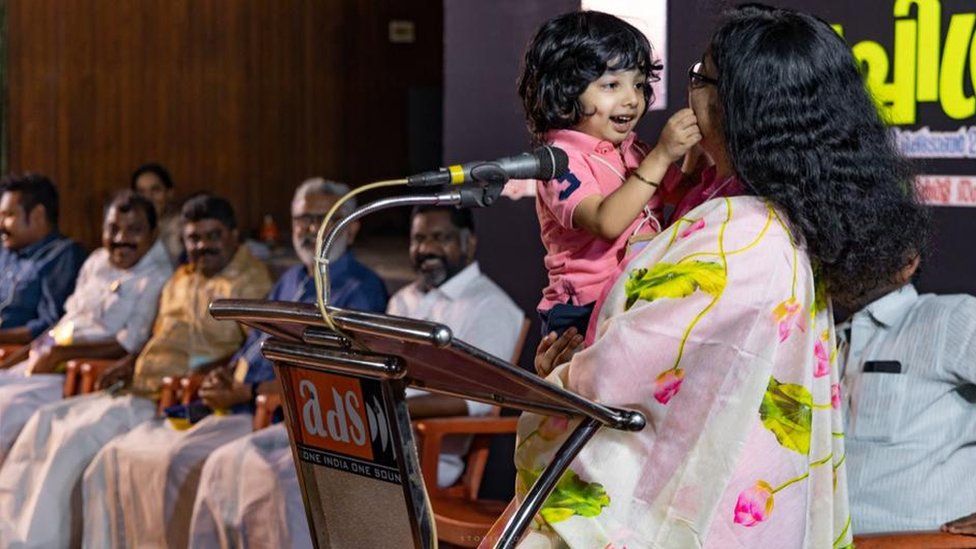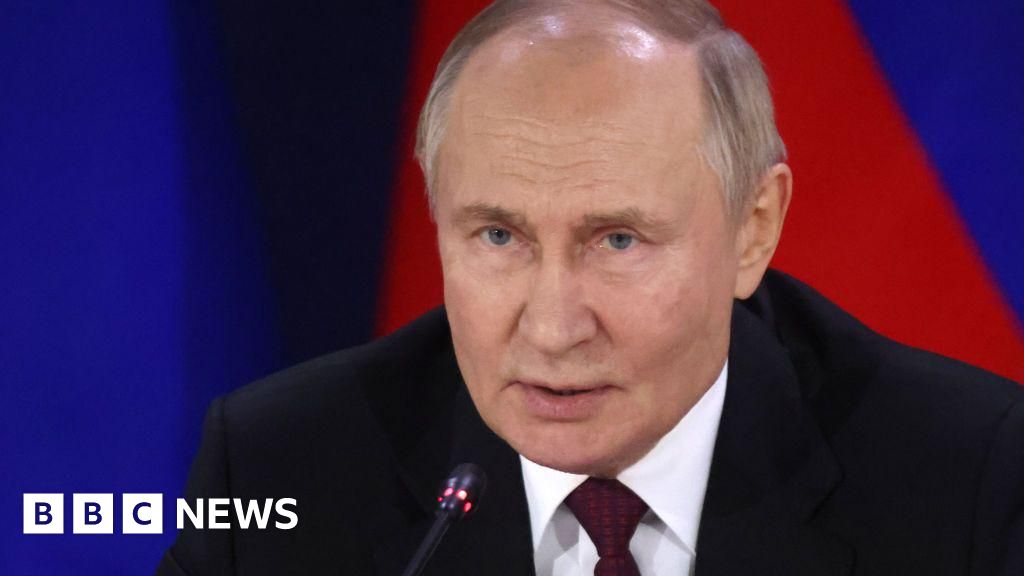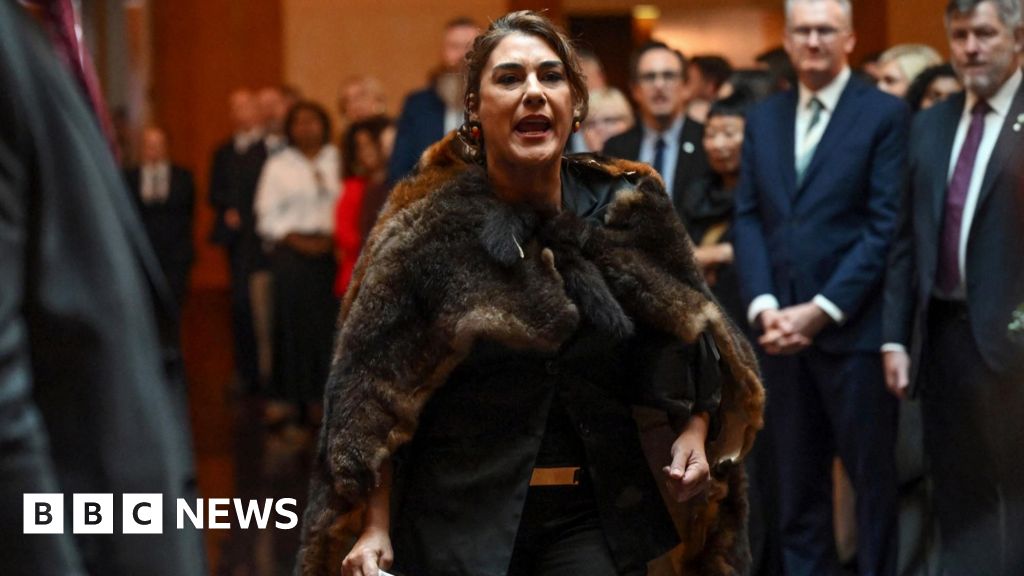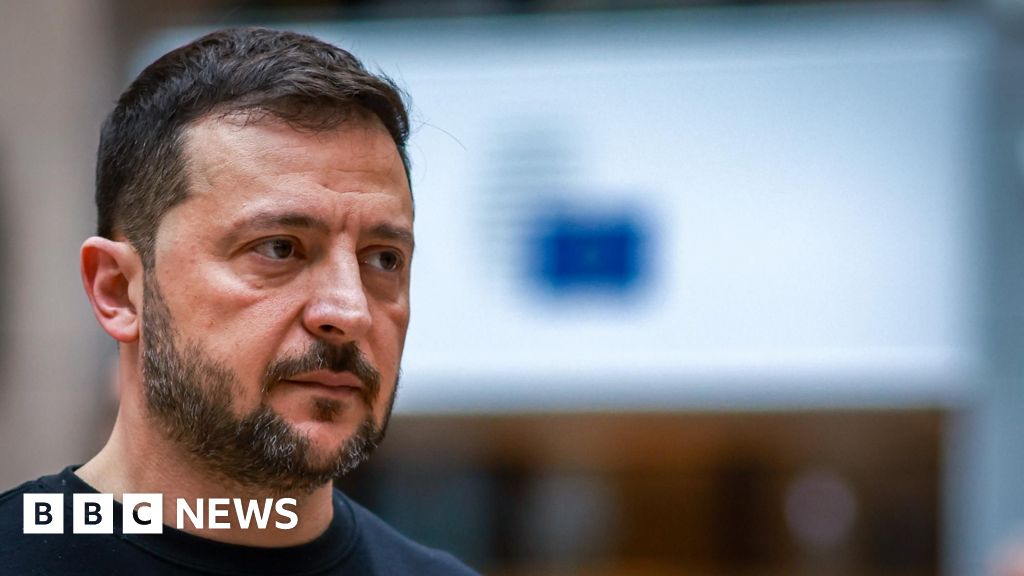ARTICLE AD BOX
 Image source, Courtesy: Divya S Iyer
Image source, Courtesy: Divya S Iyer
Divya S Iyer with her son Malhar at the film festival on 30 October
Last week, a video of a civil servant in the southern Indian state of Kerala holding her three-year-old son in her arms while delivering a speech at an event went viral, starting off a lively debate on social media. The BBC's Geeta Pandey in Delhi reports.
Years ago, when my son was young, I would sometimes take him to work, especially on a weekend or a holiday.
I once took him along to interview a minister I'd been trying to speak to for days and when his office called to confirm time on my day off, I immediately accepted.
The minister was delighted to see a little boy turn up at his office - he made small talk with him and asked his staff to bring him a snack and a drink.
This was not the only instance I took him to work. And over the years, I've seen many colleagues at the BBC bring their children to the office. No-one's ever batted an eyelid because in India childcare is mostly the responsibility of mothers and juggling work and home is the reality of a majority of working women.
Many Indian companies are introducing child-friendly policies to retain more women in the workforce and some countries, such as the US and Canada, even have a national day when parents are encouraged to bring children to work.
So the debate that was sparked off when Divya S Iyer, who serves as the collector of Pathanamthitta district, took her toddler to the closing ceremony of a film festival on the evening of 30 October has surprised many.
Ms Iyer told me that this was not the first work event she had taken her son to "but this somehow went viral and took an expected turn and garnered all kinds of opinions".
"I took Malhar along because it was Sunday, a day I usually spend with him. He'd been playing outside for over half an hour when he spotted me on the dais and came running towards me," she said, adding that "what happened next was a spontaneous reaction of a mother and a child".
Image source, Credit: Ananthakrishnan
Image caption,Divya S Iyer is the top bureaucrat in Pathanamthitta district of Kerala
A video of the event that went viral showed Ms Iyer scooping him up in her arms, the child pulling her cheeks and throwing his arms around her neck. After a few moments spent exchanging affection, she went on to give a 10-minute speech.
Deputy speaker of the state assembly and the festival's main organiser Chittayam Gopakumar, who was the first to share the video on Facebook, wrote that "Malhar had brought a lot of joy to the event".
Many took to social media to appreciate the presence of a happy toddler running around on stage - but some disagreed, calling Ms Iyer's behaviour "inappropriate" and saying that she had "trivialised the event" by taking along her child.
"The reactions were like a bolt from the blue," Ms Iyer told me, explaining that "it was not an official event" and that she "never thought that there would be two ways to look at it".
"I believe that taking children to places where they don't normally go helps broaden their horizon and enables them to grow up in a wholesome fashion," she said.
"Childhood is not only about inflated balloons and teddy bears, it's also about real-life experiences," she said. "I want my son to see more of me. I want him to realise that I'm a lot more than just his mother, that I'm a woman and an officer too."
A majority of the responses, she said, were quite encouraging, perhaps "because every family goes through it".
"I'm a 24x7 officer and a 24x7 mum. We have multiple roles and I can't shun any of them. I have to find an equilibrium to take both along together and find work-life balance. What I'm trying to understand is why some people found it hard to accept?" she said.
The backlash, Ms Iyer added, most likely came from the misconception that it was an official function and because of gender stereotyping, where women in positions of power are expected to be in a certain fashion.
Some of the criticism is believed to be politically motivated - her husband KS Sabarinadhan is a politician from the state's opposition Congress party and has spoken out in her support.
"The malice aside, it is heartening that this controversy has resulted in an open discussion on the plight of working mothers in our society thus leading to a greater sensitisation about the issue," Mr Sabarinadhan wrote in the Indian Express.
Pointing out that New Zealand Prime Minister Jacinda Ardern had brought her infant to the UN General Assembly and Australian Senator Larissa Waters had breastfed her baby in parliament, he wrote that "workspaces needed to change and become more accommodating".
Image source, Getty Images
Image caption,Countries like US and Canada have a national day when parents are encouraged to bring children to work
Even though Ms Iyer's decision was not prompted by a need for childcare, it has led to a debate about the problems of working women, especially from poorer people such as day-wage labourers and domestic helpers, who are forced to take their children to work every day.
"This is very unfair," says historian and feminist researcher J Devika. "I don't understand why she received so much flak on social media and why would anyone complain? This was not an official event, so why this fuss?"
Ms Devika, who often took her daughters when they were young to work events because she "couldn't afford childcare at home and there were no creches", says "we all know that women are never exempt from childcare responsibility".
This controversy, she says, shows that women are judged for whatever they do.
"Remember there was a time when former [former prime minister] Indira Gandhi was criticised for being a cold mother? And now Divya is being trolled for being a warm mother.
"I would like to see all these critics riled up when they see female construction workers carrying their children to work. I think they should direct their anger towards such atrocities."
Some like noted lyricist Rajeev Alunkal, however, say that "the collector did not behave on the stage as she should have".
Mr Alunkal told a TV channel he has been taking his son to public programmes "since he was four, but I would make him sit at the front and tell him not to move".
Ms Iyer says "the biggest positive outcome" is that it triggered a conversation.
"I received a lot of messages, especially from young mothers who reached out to me saying that they found it very heart-warming that I did not shoo him away and that it's opened doors for them too."
You may also like:
How company childcare is helping some return to work in India

 2 years ago
26
2 years ago
26








 English (US)
English (US)